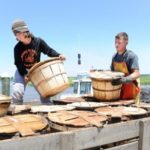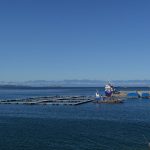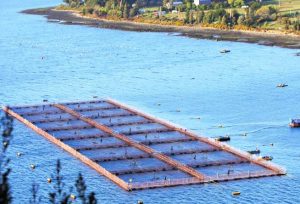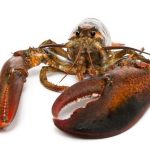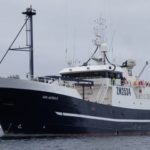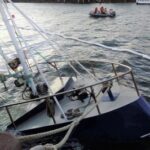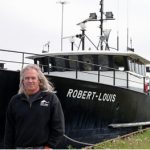Category Archives: Pacific
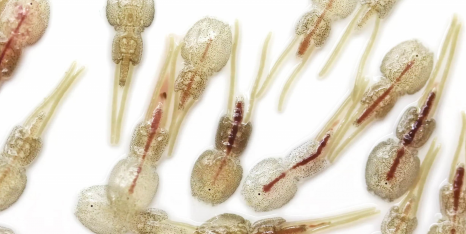
Why ‘normal’ salmon don’t get as many parasites
New research reveals the inherent ability of salmon to avoid infection through their first line of defense—behavior. In the rapidly growing fish-farming industry, parasite outbreaks cause production inefficiencies, poor welfare for billions of fish, and negative consequences for wild populations when diseases spread. “Parasite outbreaks in wild fish have been induced by farmed fish in major farming systems, such as sea lice infestations on wild salmon in Europe and North America,” says Tim Dempster, associate professor in the School of BioSciences at the University of Melbourne. click here to read the story 15:25
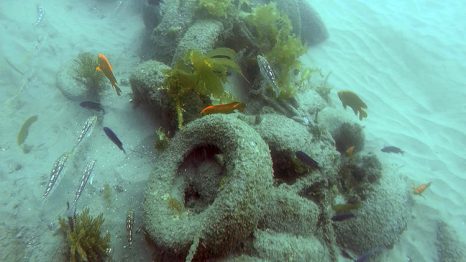
Eco-Warriors Once Used Old Tires In A Failed Attempt To Create An Artificial Reef
Divers are removing hundreds of old tires and debris environmentalists dumped off the coast of Southern California 30 years ago to help create an artificial barrier reef. Diving crews began cleaning up the mess earlier this month, according to the California Coastal Commission. Activist Rodolphe Streichenberger dumped the refuse in the bay in 1988 to establish an experimental, artificial reef – he fought for years to prevent its cleanup. click here to read the story ‘It just looks like a pile of trash’: Boat crew hauls tire reef out of the sea off Newport click here to read the story 09:37
Coast Guard medevacs 62-year-old man from vessel near Point Piedras
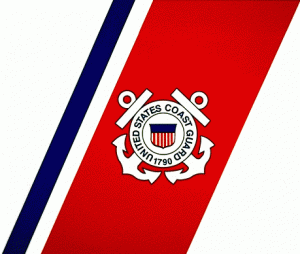 The Coast Guard medevaced a 62-year-old man from the fishing vessel Pamela Rose approximately eight nautical miles north of Point Piedras, Thursday morning. At approximately midnight, a good Samaritan contacted Coast Guard Sector San Francisco watchstanders reporting that the 54-foot fishing vessel Pamela Rose’s mast broke, which injured two crew members leaving one crew member unresponsive, and without a pulse. Watchstanders dispatched an MH-65 Dolphin helicopter,, crew hoisted the man into the helicopter and transported him to Paso Robles Municipal Airport. Coast Guard Sector Los Angeles-Long Beach watchstanders dispatched a 47-foot Motor Lifeboat crew from Coast Guard Station Morro Bay to tow the fishing vessel Pamela Rose into Morro Bay Harbor. The medevaced man was last reported to be in stable condition. click for video -USCG-
The Coast Guard medevaced a 62-year-old man from the fishing vessel Pamela Rose approximately eight nautical miles north of Point Piedras, Thursday morning. At approximately midnight, a good Samaritan contacted Coast Guard Sector San Francisco watchstanders reporting that the 54-foot fishing vessel Pamela Rose’s mast broke, which injured two crew members leaving one crew member unresponsive, and without a pulse. Watchstanders dispatched an MH-65 Dolphin helicopter,, crew hoisted the man into the helicopter and transported him to Paso Robles Municipal Airport. Coast Guard Sector Los Angeles-Long Beach watchstanders dispatched a 47-foot Motor Lifeboat crew from Coast Guard Station Morro Bay to tow the fishing vessel Pamela Rose into Morro Bay Harbor. The medevaced man was last reported to be in stable condition. click for video -USCG-
Stormwater pollution in Puget Sound streams killing coho before they can spawn
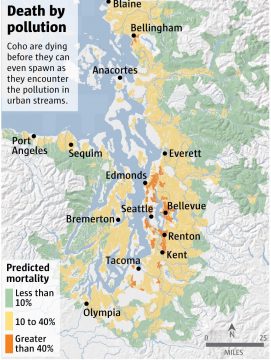 The sweet seep of autumn rain is bringing coho salmon back home to their natal streams all over the Puget Sound basin — where too often they encounter a bitter truth: pollution in a shocking 40 percent of their home range so bad it can inflict a swift death. The culprit is stormwater, and it is causing death rates so high, some populations of wild coho are at risk of local extinction, researchers found.The stormwater problem has long bedeviled the region. click here to read the story 13:14
The sweet seep of autumn rain is bringing coho salmon back home to their natal streams all over the Puget Sound basin — where too often they encounter a bitter truth: pollution in a shocking 40 percent of their home range so bad it can inflict a swift death. The culprit is stormwater, and it is causing death rates so high, some populations of wild coho are at risk of local extinction, researchers found.The stormwater problem has long bedeviled the region. click here to read the story 13:14
A Northwest tribal sovereignty battle, centered on culverts – click here to read the story
Is the fishing boat stuck on the rocks near Cayucos going to stay there forever?
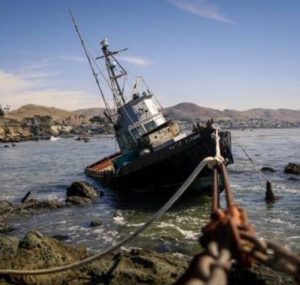 A Morro Bay commercial fishing boat has been stuck on coastal rocks off the northern coast of Cayucos for more than two months, mired in a jurisdictional limbo as officials from state, federal and county agencies figure out how to remove it — and who’s going pay for it. It may stay there a while. The Point Estero ran aground on July 28 while returning to the Morro Bay Harbor from about 40 miles offshore, where the operator was fishing for slime eels, the Morro Bay Harbor Patrol previously told The Tribune. click here to read the story 21:37
A Morro Bay commercial fishing boat has been stuck on coastal rocks off the northern coast of Cayucos for more than two months, mired in a jurisdictional limbo as officials from state, federal and county agencies figure out how to remove it — and who’s going pay for it. It may stay there a while. The Point Estero ran aground on July 28 while returning to the Morro Bay Harbor from about 40 miles offshore, where the operator was fishing for slime eels, the Morro Bay Harbor Patrol previously told The Tribune. click here to read the story 21:37
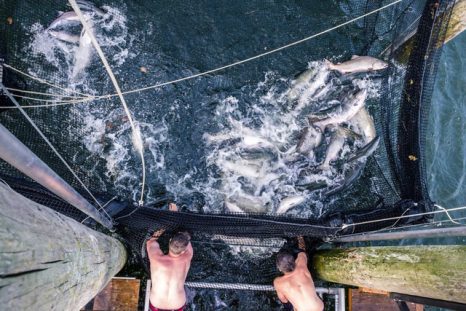
Fish traps for Columbia River salmon get another look
More than eight decades after their demise, fish traps are getting a fresh look from researchers convinced they offer a more sustainable way to catch Columbia River salmon. These traps are formed by nets attached to pilings that gently guide the fish into a kind of underwater corral. Wild fish protected under the federal Endangered Species Act can be released to resume their upstream journey, while their more abundant hatchery brethren are sent to the processors. These traps are formed by nets attached to pilings that gently guide the fish into a kind of underwater corral. Wild fish protected under the federal Endangered Species Act can be released to resume their upstream journey, while their more abundant hatchery brethren are sent to the processors. click here to read the story 12:55
“The fact is, law abiding, licensed commercial fishermen are considered by our government to be the most dangerous people in America.”
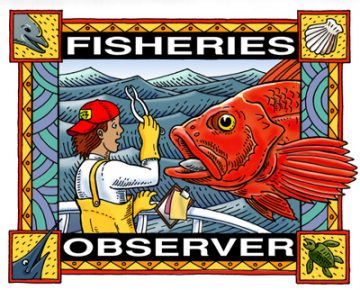 In September 1983 the Ninth Circuit Court of Appeals in the Balelo v Baldridge decided the first court challenge against the government policy of placing federal observers on commercial fishing vessels to monitor their operations. The plaintiffs were Pacific tuna purse seiners. This the first observer program in the American fishing industry was enacted under the Marine Mammal Protection Act (MMPA). The first observers spent many weeks on the high seas with the fishermen at a time when there was literally no other way to assure that the newly enacted law — meant to bring the mortality of marine mammals in the tuna fishery as close to zero as possible — was being followed by these operations. It was provided for in this portion of the MMPA that the captains be given notice well in advance of the required observer trips and that the funding be fully covered by Congress. click here to read the story 19:21
In September 1983 the Ninth Circuit Court of Appeals in the Balelo v Baldridge decided the first court challenge against the government policy of placing federal observers on commercial fishing vessels to monitor their operations. The plaintiffs were Pacific tuna purse seiners. This the first observer program in the American fishing industry was enacted under the Marine Mammal Protection Act (MMPA). The first observers spent many weeks on the high seas with the fishermen at a time when there was literally no other way to assure that the newly enacted law — meant to bring the mortality of marine mammals in the tuna fishery as close to zero as possible — was being followed by these operations. It was provided for in this portion of the MMPA that the captains be given notice well in advance of the required observer trips and that the funding be fully covered by Congress. click here to read the story 19:21
STOP DOING THIS: McKinleyville Dirtbags Continue to Disrupt Coast Guard Helicopter Flights With Their Stupid Laser Pointers
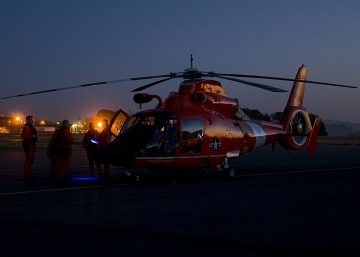 From the United States Coast Guard, Sector Humboldt Bay: The Coast Guard is asking the public for tips or information regarding recent laser attacks aimed against rescue helicopter crews. The latest attack occurred Tuesday evening near the Arcata-Eureka airport as an MH-65 Dolphin helicopter crew from Coast Guard Air Station Humboldt Bay was conducting a practice instrument approach. The helicopter was southeast of the airport when a green laser coming from a wooded area about three miles east of McKinleyville, was shined directly at the aircraft. The pilots quickly landed so the crew members could receive medical checkups. click here to read the story 19:12
From the United States Coast Guard, Sector Humboldt Bay: The Coast Guard is asking the public for tips or information regarding recent laser attacks aimed against rescue helicopter crews. The latest attack occurred Tuesday evening near the Arcata-Eureka airport as an MH-65 Dolphin helicopter crew from Coast Guard Air Station Humboldt Bay was conducting a practice instrument approach. The helicopter was southeast of the airport when a green laser coming from a wooded area about three miles east of McKinleyville, was shined directly at the aircraft. The pilots quickly landed so the crew members could receive medical checkups. click here to read the story 19:12
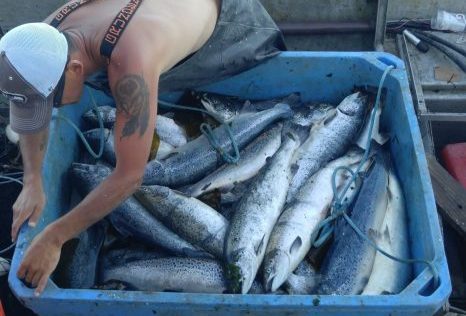
Company offered money for Lummi Nation’s silence about net pens, letters show
Cooke Aquaculture offered to pay a premium price for Atlantic salmon caught by the Lummi Nation after a major spill from the company’s Cypress Island fish farm if the tribe would not advocate getting rid of net pen aquaculture. The tribe tartly rejected the offer. “Your demand to keep quiet for a few extra dollars is insulting,” Timothy Ballew II, chairman of the Lummi Indian Business Council, responded in a Sept. 14 letter. Nell Halse, vice president for communications for Cooke, said Wednesday the offer “was not an attempt to muzzle or insult the Lummi Nation, but rather an effort to negotiate toward common ground and respect the interests and concerns of both parties at the table …” click here to read the story 10:13
Lummi chairman calls bribery attempt ‘insulting and preposterous’ – click here to read the story

Canning conundrum Slow tuna season cuts cannery production
ASTORIA — Back-to-back poor albacore tuna seasons have slashed production for canneries on both sides of the Columbia. In Astoria, Northwest Wild Products has canned approximately half their typical total, about 25 cases, an amount they say will likely sell out before the New Year. Sportmen’s Cannery in Seaview reported canning around 8,000 pounds of albacore — 20,000 pounds less than last season. Sportsmen’s Cannery co-owner Tina Ward estimated that tuna canning, including retail sales and processing for sport fishermen, usually accounts for “at least 70 percent” of their business. click here to read the story 21:52
Legislative Hearing on Endangered Species Act, Hydropower Bills – Thursday, October 12, 2017 10:00 AM – Watch Live.
 H.R. 3144 (Rep. Cathy McMorris Rodgers), To provide for operations of the Federal Columbia River Power System pursuant to a certain operation plan for a specified period of time, and for other purposes. – H.R. 3916 (Rep. Ken Calvert), To amend the Endangered Species Act of 1973 to vest in the Secretary of the Interior functions under that Act with respect to species of fish that spawn in fresh or estuarine waters and migrate to ocean waters, and species of fish that spawn in ocean waters and migrate to fresh waters. “Federally Integrated Species Health (FISH) Act” Starts 10:00, click here to read the info 18:59
H.R. 3144 (Rep. Cathy McMorris Rodgers), To provide for operations of the Federal Columbia River Power System pursuant to a certain operation plan for a specified period of time, and for other purposes. – H.R. 3916 (Rep. Ken Calvert), To amend the Endangered Species Act of 1973 to vest in the Secretary of the Interior functions under that Act with respect to species of fish that spawn in fresh or estuarine waters and migrate to ocean waters, and species of fish that spawn in ocean waters and migrate to fresh waters. “Federally Integrated Species Health (FISH) Act” Starts 10:00, click here to read the info 18:59
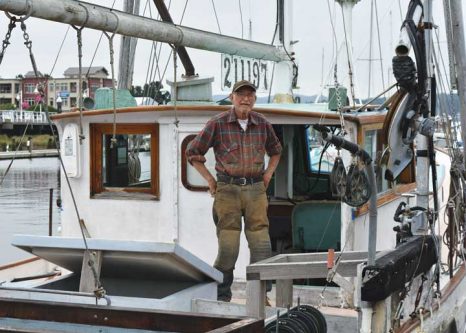
Time passes but the Otter remains the same
Walt Fossek is 88 years young, and his boat, the Otter, is 104 years old. Both wear their age well. Fossek is active, mentally sharp and a great storyteller and the Otter draws daily interest from tourists who wander around the marina, wondering at the elegant lines and excellent condition of the old wooden boat. If these visitors are lucky, Fossek will be on board and in a story mood, sharing tales from his 50 years as the owner and operator of the well-maintained antique vessel. Fossek celebrated his birthday last month by doing one of his favorite things in life — working on his boat. click here to read the story 14:46
Legends of lure Demand soars for Andy Betnar’s Astoria-made Fatal Flash Lures
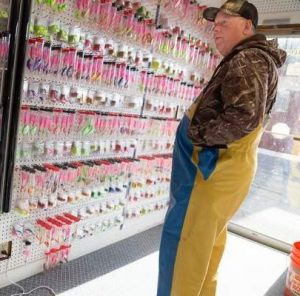 A commercial fishermen and fishing guide, Andy Betnar considers his other business a part-time hobby. That’s how it started anyway. It all began in 2008 when Betnar sought to re-engineer a legendary fishing lure, one that had become so renowned on the Willamette River that it was affectionately named the “Nelson Blade” after originator/creator Dudley Nelson. Nelson was an innovative Portland-area fisherman. He was famous for his homemade spoons and spinners, but never produced the lures commercially. Instead, Nelson regularly passed them to fishermen who happened to be on the same stretch of river and inquired about what he was using. As Nelson aged, dwindling availability of the lures prompted Betnar to recreate what many consider the best salmon fishing spinner. click here to read the story 08:36
A commercial fishermen and fishing guide, Andy Betnar considers his other business a part-time hobby. That’s how it started anyway. It all began in 2008 when Betnar sought to re-engineer a legendary fishing lure, one that had become so renowned on the Willamette River that it was affectionately named the “Nelson Blade” after originator/creator Dudley Nelson. Nelson was an innovative Portland-area fisherman. He was famous for his homemade spoons and spinners, but never produced the lures commercially. Instead, Nelson regularly passed them to fishermen who happened to be on the same stretch of river and inquired about what he was using. As Nelson aged, dwindling availability of the lures prompted Betnar to recreate what many consider the best salmon fishing spinner. click here to read the story 08:36
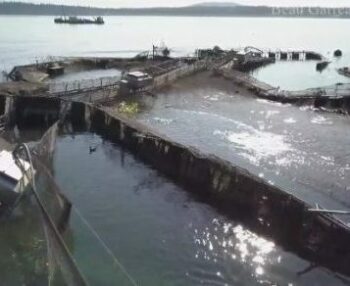
Cooke Aquaculture Fish farm has 60 days to fix net pens outside Seattle, risks losing lease
Just a week after the state Department of Fish and Wildlife approved shipment of 1 million more farmed Atlantic salmon to Cooke Aquaculture’s fish farm near Bainbridge Island, another state agency says it has found a hole in the nets and corrosion in the structure of the facility. The Department of Natural Resources on Monday notified Cooke that it is in default of the terms of its lease at its Rich Passage operation. It ordered the facility repaired within 60 days, or the department may cancel the company’s lease for the facility, which operates over public bed lands. click here to read the story 13:53
The Ocean’s Low-Oxygen Dead Zones Are Getting Worse
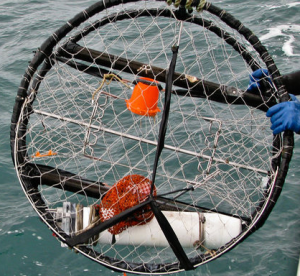 Along the West Coast, low-oxygen levels in bottom layers of the ocean, known as hypoxia, have become a big concern for scientists and fishers alike—fish and crabs are vital to ecosystems, research, and an entire industry. “We’re always on the lookout to see, is this going to be a bad year?” says Francis Chan, a marine ecologist at Oregon State University who studies the effects of ocean chemistry. And by all accounts, 2017 shaped up to be a bad year. Scientists first got reports of crabs dying in pots off the Oregon coast back in 2002. Since then, says Chan, there have been some years when the oxygen levels in some places drop to zero and stay that way for weeks or even months. Video, click here to read the story 17:16
Along the West Coast, low-oxygen levels in bottom layers of the ocean, known as hypoxia, have become a big concern for scientists and fishers alike—fish and crabs are vital to ecosystems, research, and an entire industry. “We’re always on the lookout to see, is this going to be a bad year?” says Francis Chan, a marine ecologist at Oregon State University who studies the effects of ocean chemistry. And by all accounts, 2017 shaped up to be a bad year. Scientists first got reports of crabs dying in pots off the Oregon coast back in 2002. Since then, says Chan, there have been some years when the oxygen levels in some places drop to zero and stay that way for weeks or even months. Video, click here to read the story 17:16
Trump official says government won’t stand in the way of removing Klamath dams
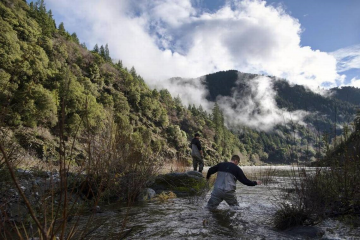 After the Obama administration helped broker a deal last year to tear down four dams straddling the California-Oregon border, practically everyone involved figured President Donald Trump would undermine it. They assumed Trump would side with conservative activists and Republican congressmen who thwarted an earlier version of the same agreement in 2015. Those assumptions are proving wrong. The fight over the Klamath River is one of country’s fiercest, longest-running water wars. click here to read the story 08:26
After the Obama administration helped broker a deal last year to tear down four dams straddling the California-Oregon border, practically everyone involved figured President Donald Trump would undermine it. They assumed Trump would side with conservative activists and Republican congressmen who thwarted an earlier version of the same agreement in 2015. Those assumptions are proving wrong. The fight over the Klamath River is one of country’s fiercest, longest-running water wars. click here to read the story 08:26
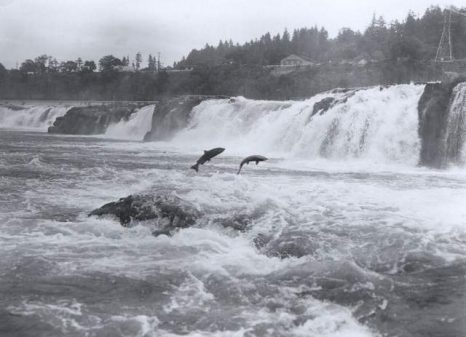
Salmon in the history of the Pacific Northwest
Lewis and Clark’s interpreter and guide Sacagawea was a “Salmon Eater.” That’s what they called her tribe of Lemhi Shoshone Native Americans, a nomadic band who lived in Idaho’s Lemhi River Valley and along the upper Salmon River — their descendants today living mostly on the Fort Hall Indian Reservation near Pocatello. Sacagawea’s tribe was made up of the Agaidikas or Salmon-Eater Shoshone and the Tukidikas. Sacagawea belonged to the Agaidikas. Food was almost always a big challenge for Lewis and Clark’s Corps of Discovery expedition. click here to read the story 19:43
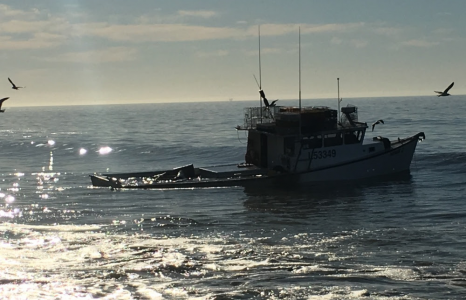
Coast Guard, partners respond to grounded fishing vessel near El Capitan State Beach
Coast Guard and local partner agencies are responding to a grounded commercial fishing vessel near El Capitan State Beach Saturday. At approximately 5:30 a.m., the crew aboard the Kaylee J notified Coast Guard Sector Los Angeles-Long Beach that their vessel ran aground and requested assistance. The crew aboard were reportedly not injured. Coast Guard Marine Safety Detachment personnel in Santa Barbara responded and reported no oil pollution in the water. A unified command was established between the Coast Guard, California Department of Fish and Wildlife’s Office of Spill Prevention and Response and California State Parks to remove oil and hazardous materials held within the vessel’s structure. The cause of the incident is under investigation. -USCG- 18:41
AB 944 – Local lawmaker helps create Spiny Lobster Commission
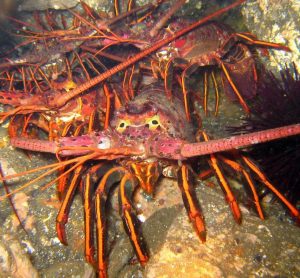 Assemblymember Monique Limón has helped create a Spiny Lobster Commission to support the local fishing industry. Governor Jerry Brown has signed the bill, Limón announced Friday. She authored the bill and says it will aid local spiny lobster fisheries. This is really an effort of the fishers, businesses and conservation groups coming together to proactively solve problems,” said Assemblymember Limón. “With AB 944, the Spiny Lobster Commission will be able to carry out programs of education, marketing and research to promote our local product, and to do so in a way that is sustainable.” click here to read the story 11:53
Assemblymember Monique Limón has helped create a Spiny Lobster Commission to support the local fishing industry. Governor Jerry Brown has signed the bill, Limón announced Friday. She authored the bill and says it will aid local spiny lobster fisheries. This is really an effort of the fishers, businesses and conservation groups coming together to proactively solve problems,” said Assemblymember Limón. “With AB 944, the Spiny Lobster Commission will be able to carry out programs of education, marketing and research to promote our local product, and to do so in a way that is sustainable.” click here to read the story 11:53
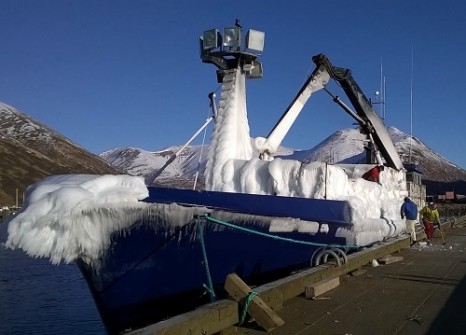
USCG: Remain Upright by Fully Understanding Vessel Stability
The need for operators to understand their vessel’s Stability Instructions (SI) cannot be overstated. It is important to understand the document. Operators and crew should seek out opportunities to further their knowledge of stability via courses, training, workshops, and visits from Naval Architects. They should also take advantage of other various initiatives, both mandatory and voluntary, to discuss and compare a vessel’s current SI to the actual loaded condition prior to departing port. An independent review of a vessel’s loaded condition, equipment, and operations can often provide important insights. click here to read the story 10:21
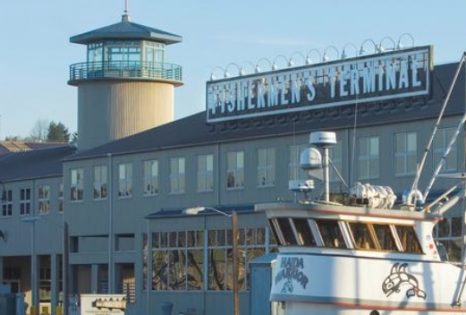
Port of Seattle plans $35 million Fishermen’s Terminal makeover to stem losses
The Port of Seattle has a $35 million plan to redevelop the iconic but unprofitable Fishermen’s Terminal in Ballard. Port officials hope the mix of new and renovated buildings will boost terminal revenue, allowing the public agency to fulfill its 100-year commitment to the fishing industry while remaining accountable to King County taxpayers. The plan calls for demolitions, new buildings and a reduction in public parking to reduce the $4.3 million in annual operating losses at the terminal, which is home to the Alaska fishing fleet. View 9 photos, click here to read the article 19:47
Norton Sound: Arson ruled out, authorities trying to locate the owner
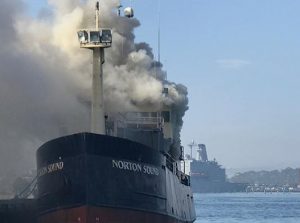 Authorities Thursday were still attempting to untangle a complicated web of ownership details linked to a fire-gutted boat that smoldered for several days over the weekend near Seaport Village in the San Diego Harbor, but investigators ruled out arson as the cause of the flames. What started the fire, which began Friday morning aboard the Norton Sound, was still undetermined Thursday, San Diego Fire-Rescue Department spokeswoman Monica Munoz said. The blaze was fully knocked down Sunday, but investigators were unable to probe its origins until mid-week. The next step in the clean-up effort will be to move the Norton Sound,,, But locating the owner has proven difficult. click here to read the story 15:04
Authorities Thursday were still attempting to untangle a complicated web of ownership details linked to a fire-gutted boat that smoldered for several days over the weekend near Seaport Village in the San Diego Harbor, but investigators ruled out arson as the cause of the flames. What started the fire, which began Friday morning aboard the Norton Sound, was still undetermined Thursday, San Diego Fire-Rescue Department spokeswoman Monica Munoz said. The blaze was fully knocked down Sunday, but investigators were unable to probe its origins until mid-week. The next step in the clean-up effort will be to move the Norton Sound,,, But locating the owner has proven difficult. click here to read the story 15:04
Oregon, California senators step up pressure on Trump administration to approve salmon emergency cash
 Oregon and California’s four senators, all Democrats, stepped up the pressure on the Trump administration Wednesday to approve disaster assistance for salmon fishermen along 200 miles of coastline. In April, the Pacific Fishery Management Council, which manages coastal salmon seasons, recommended closing coastal and commercial salmon fishing entirely along an area equal to roughly half of Oregon’s coastline. Govs. Kate Brown of Oregon and Jerry Brown of California requested emergency funding relief in May, to no avail. click here to read the story 11:51
Oregon and California’s four senators, all Democrats, stepped up the pressure on the Trump administration Wednesday to approve disaster assistance for salmon fishermen along 200 miles of coastline. In April, the Pacific Fishery Management Council, which manages coastal salmon seasons, recommended closing coastal and commercial salmon fishing entirely along an area equal to roughly half of Oregon’s coastline. Govs. Kate Brown of Oregon and Jerry Brown of California requested emergency funding relief in May, to no avail. click here to read the story 11:51
More Atlantic salmon coming to Puget Sound despite objections
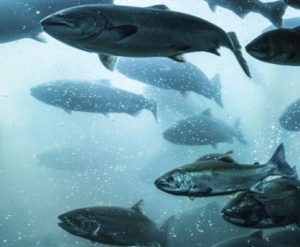 The company that spilled thousands of invasive salmon into Puget Sound is sending 1 million more into local pens despite objections from state officials. “We are very concerned about Cooke Aquaculture’s plan to transfer up to 1 million Atlantic salmon smolts to a in Clam Bay across from Bainbridge Island. This is disappointing and frustrating, coming on the heels of the August collapse of Cooke’s net pen near Cypress Island that held 305,000 fish,” Washington Governor Jay Inslee said. click here to read the story 10:15
The company that spilled thousands of invasive salmon into Puget Sound is sending 1 million more into local pens despite objections from state officials. “We are very concerned about Cooke Aquaculture’s plan to transfer up to 1 million Atlantic salmon smolts to a in Clam Bay across from Bainbridge Island. This is disappointing and frustrating, coming on the heels of the August collapse of Cooke’s net pen near Cypress Island that held 305,000 fish,” Washington Governor Jay Inslee said. click here to read the story 10:15
State gives OK to new salmon farm permit – The state found, however, that Fish and Wildlife didn’t have the authority to deny a permit to transfer fish into an existing pen, according to the joint release from Inslee and Franz. click here to read the story 10:42
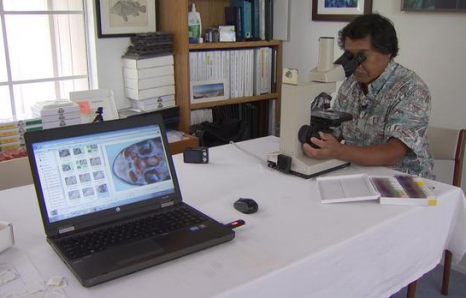
Thousands of Sharks, Other Sea Life Mysteriously Die in San Francisco Bay, State Says No Funding Available to Determine Cause
As many as 2,000 leopard sharks have mysteriously died in the San Francisco Bay over the past few months. The California Department of Fish and Wildlife says determining the cause is not a priority for the state since the sharks are not threatened or endangered, however, scientists say additional research and resources are crucial since the threat is now believed to be preying on other marine life. “This pathogen can tackle a variety of different species … we’ve had a much more diverse group of fish that have been found dead in the San Francisco Bay.” At least 500 bat rays, hundreds of striped bass, 50 smooth-hound sharks and about 100 halibut died in the bay between February and July, according to Okihiro’s estimates. Video, click here to read the story 09:24
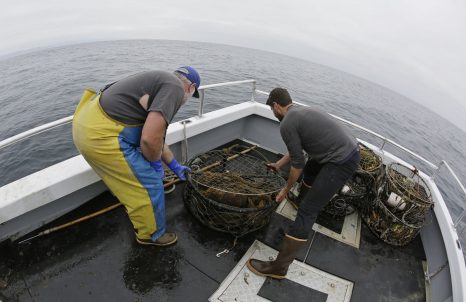
Environmental group sues California over whale-killing gear
An environmental group sued the state of California on Tuesday for allegedly not doing enough to keep Dungeness crab fishery gear from killing protected whales. The Center for Biological Diversity filed its lawsuit in federal court in San Francisco, saying the California Department of Fish and Wildlife is liable for a surge in entanglements of endangered whales and sea turtles because it authorizes and manages operation of the fishery. click here to read the story 15:18
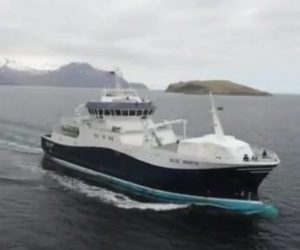
$1.4 billion fishing industry stays afloat amid regulations, tragedies
It’s been two months since the missing crab vessel Destination was found on the ocean floor of the Bering Sea. The Seattle-based crew went missing in February. All six people on board died when the crab boat went down in “Deadliest Catch” waters. You can see the memorial that still stands at Fisherman’s Terminal in Seattle’s Ballard neighborhood. It’s a grim reminder that Alaskan fishing is still coined the most dangerous job in the world, but the commercial fishing industry also has helped form the blueprint of the Pacific Northwest. Latest numbers from the state show it brings in $1.4 billion a year to our state. Today, it employs more than 14,000 people. Today, the $35 million, 191-foot freezer liner Blue North glides across the Bering Sea, catching cod in a moon pool. Video, click here to read the story 09:02
Coast Guard medevaced fisherman suffering possible heart attack off Reedsport, Ore.
 Coast Guard crews medevaced a man suffering from symptoms of a possible heart attack from a fishing vessel 18 miles off Reedsport, Friday night. Watchstanders at Coast Guard Sector North Bend were contacted around 8 p.m. by the fishing vessel Leann crew. The crew reported one of their deckhands was suffering a possible heart attack and requested assistance, the Coast Guard boat crew and aircrew launched in response. The aircrew lowered their rescue swimmer onto the fishing vessel and then both swimmer and deckhand transferred to the motor life boat. Once transferred to EMS personnel on shore, the deckhand was taken to Bay Area Hospital in Coos Bay. -USCG- 15:37
Coast Guard crews medevaced a man suffering from symptoms of a possible heart attack from a fishing vessel 18 miles off Reedsport, Friday night. Watchstanders at Coast Guard Sector North Bend were contacted around 8 p.m. by the fishing vessel Leann crew. The crew reported one of their deckhands was suffering a possible heart attack and requested assistance, the Coast Guard boat crew and aircrew launched in response. The aircrew lowered their rescue swimmer onto the fishing vessel and then both swimmer and deckhand transferred to the motor life boat. Once transferred to EMS personnel on shore, the deckhand was taken to Bay Area Hospital in Coos Bay. -USCG- 15:37
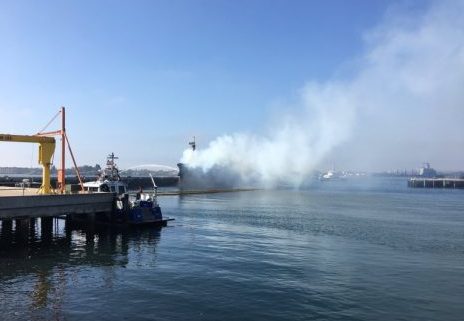
Fire-damaged fishing vessel in San Diego Harbor continues to smolder
A fire that tore through a docked commercial fishing and research ship near Seaport Village continued to smolder Saturday. The blaze initially erupted for unknown reasons inside the 120-foot Norton Sound at about 9:30 a.m. Friday. It was unclear if anyone was aboard the vessel when the fire broke out. Firefighters initially battled the flames from inside, finding no victims, but were ordered to pull out because of the intensity of the fire inside the boat after about a half-hour. The fire seemed to mostly burn itself out, then flared up again later in the day. The interior of the vessel continued to burn throughout Friday and into early Saturday. click here to read the story 15:01
At Seattle-based seafood giant Trident, a new generation is at the helm
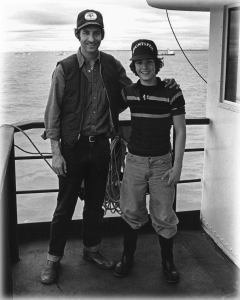 Joe Bundrant’s first Alaska summer with Trident Seafoods was back in 1979, a tense time for the Seattle-based company founded by his father Chuck Bundrant. The Bristol Bay salmon run was in full swing. But a bitter strike over low prices kept nets out the water, and shut down the regional harvest. Chuck Bundrant had piled up debt to build the Bountiful, a 165-foot processing vessel that was then only a year old. He didn’t want it to sit idle. So, he urged the fishermen to cross the picket line and allow him to freeze their sockeye catch. When the season was over, he pledged to settle with them on a fair market value “He just said, ‘Trust me.’ And those guys went fishing. It was a very powerful lesson for a young guy,” click here to read the story 12:35
Joe Bundrant’s first Alaska summer with Trident Seafoods was back in 1979, a tense time for the Seattle-based company founded by his father Chuck Bundrant. The Bristol Bay salmon run was in full swing. But a bitter strike over low prices kept nets out the water, and shut down the regional harvest. Chuck Bundrant had piled up debt to build the Bountiful, a 165-foot processing vessel that was then only a year old. He didn’t want it to sit idle. So, he urged the fishermen to cross the picket line and allow him to freeze their sockeye catch. When the season was over, he pledged to settle with them on a fair market value “He just said, ‘Trust me.’ And those guys went fishing. It was a very powerful lesson for a young guy,” click here to read the story 12:35

































